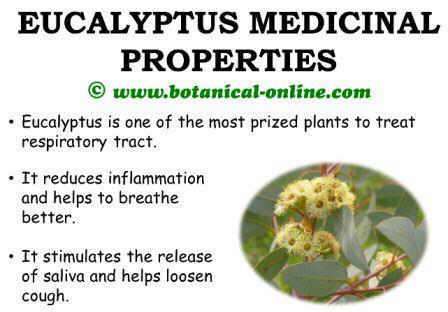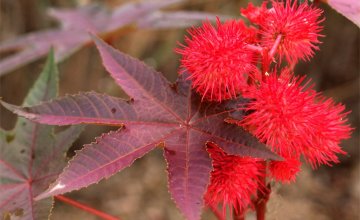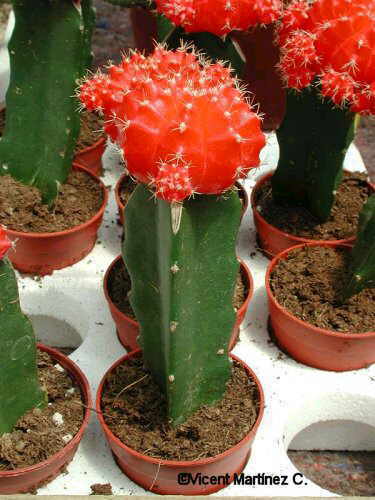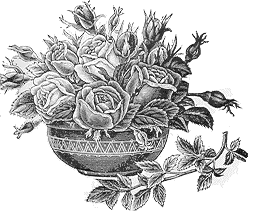Contents
- 1 Eucalyptus health benefits
- 1.1 PROPERTIES OF EUCALYPTUS FOR HEALTH
- 1.2 A plant for curing respiratory diseases
- 1.3 EUCALYPTUS FOR RESPIRATORY DISEASES
- 1.4 Eucalyptus is an effective remedy for treating colds, flu, asthma and other breathing problems
- 1.5 Eucalyptus to reduce blood sugar
- 1.6 Eucalyptus to disinfect wounds, sores and other skin conditions
- 1.7 Eucalyptus for the treatment of the pains the joints and muscles
- 1.8 OTHER APPLICATIONS OF EUCALYPTUS
- 1.9 Precautions and risks with eucalyptus
Eucalyptus health benefits
PROPERTIES OF EUCALYPTUS FOR HEALTH
A plant for curing respiratory diseases
The introduction of the eucalyptus as a medicinal plant in Western herbal medicine is fairly recent. It begins to be used from the eighteenth century, therefore, being a tree from other latitudes, its properties were known when cultivation was implanted in other areas far from its natural habitat.
From then until now, eucalyptus has been considered as one of the best plants for the treatment of diseases of the respiratory system. Ingested eucalyptus products are excreted through the respiratory tract which, when dissolved in them, exert their medicinal properties.
We can consider that eucalyptus has the following properties suitable for treating the following diseases:

Main medicinal properties of eucalyptus
- Antimicrobial Properties: It is able to eliminate the microorganisms causing diseases (bacterial properties to remove bacteria, bacteriostatic properties to inhibit the growth of bacteria, and fungicide properties to eliminate fungi).
It has been found that the application of essential oil on cultures of microorganisms as important as Staphylococci, Candida, Mycobacterium tuberculosis, rabies virus, prevents the growth of germs or removes them.
There have been experiments on how eucalyptus oil emanations are capable of removing up to 70% of Staphylococci present in a closed room. In fact this oil is used in some poor countries as a means to disinfect air. These are the reasons why it has been used in wetland areas to combat ague or purify the air in areas affected by cholera.
The main component that gives it such properties is cineole, also known as eucalyptol, which is at the same time, the most abundant component of essential oil, and which gives its antiseptic properties.
Also other components can contribute to the same properties (pinene, alpha pinene, limonene, caffeic and chlorogenic acids, linalool, geraniol, thymol, quercetin, etc). Its richness in tannins (gallic acid) and flavonoids (quercetin, quercetin) are responsible for its bacteriostatic properties.
- Expectorant properties: That are capable of producing sputum, that’s to say, to remove excess mucus in the airways. Again, eucalyptol, camphene, pinene, limonene, thymol and geraniol cause the expulsion of mucus.
- Antiinflammatory properties: Eucalyptus reduces inflammation and allow for better breathing.
In this case, eucalyptol and thymol, with their acids and flavonoids, give this property to eucalyptus. In case of inflammation of the nasal passages, it appears that these components open them (after a period of nasal narrowing) by stimulation of the hairs that line the nasal passages. This frees nasal passages of excess of mucus.
EUCALYPTUS FOR RESPIRATORY DISEASES
Eucalyptus is an effective remedy for treating colds, flu, asthma and other breathing problems
- Bronchitis: Its use can reduce the inflammation produced by this disease as well as eliminate the excess of secretions. (Decoction of 60 gr. of leaves per liter of water. Aspirate vapors covering your head with a cloth) (Infusion of half a tablespoon of dried leaves per cup of water. Take 3 cups a day)
- Influenza: It helps improve the symptoms of this disease, allowing for better breathing and reducing the discomfort it causes. (Decoction of 3 gr. of dried leaves per cup of water. 2 cups a day, sweetened with honey)
- Tonsillitis: In case of a sore throat, gargling made with the liquid from the decoction of a handful of leaves in a liter of water helps reduce swelling of the tonsils, reduce itching and eliminate the infection.
- Asthma: It reduces the inflammation and it allows the asthmatic patient to breathe better. (Decoction of a handful of leaves per liter of water. Aspirate vapors covering the head with a cloth) (A traditional treatment, not shared by most of specialists, has been smoking cigarettes prepared with 2 leaves. A couple of cigarettes per day)
- Pharyngitis: It soothes the throat and helps kill germs that cause inflammation. (Decoction of a handful of leaves per liter of water. Aspirate vapors covering the head with a cloth) (infusion of slightly more than half tablespoon of dried leaves per cup of water. Take 3 cups a day) The same treatment can be applied in case of laryngitis or inflammation of the larynx.
- Cold: It helps fight colds, reduces symptoms of this disease, diminishing inflammation, reducing cough, helping to eliminate excess mucus, soothing the throat, etc.
- Tuberculosis: in fresh or dried leaves, but it can also be used in the form of essential oil. It has antiseptic, balsamic, decongestant, respiratory stimulant and expectorant properties. It Is indicated for infectious respiratory affectations, such as tuberculosis as well as for inflammatory affectations, such as bronchitis. We can take it in the morning, afternoon and evening (Half a teaspoon of leaves (let stand 15 minutes) and you can add the juice of a lemon and a little honey. You can also inhale to clear the congestion.
- Cough: Its use is very convenient in cases of productive cough, that’s to say when it requires expectoration. In this case, eucalyptus, reduces the urge to cough, a symptom that accompanies many respiratory diseases. Soothes the throat, bronchial irritation and calms the cough in the bacterial respiratory diseases, including whooping cough. (Inhale vapors with the decoction of a couple of tablespoons per liter of water)
- Fever: Eucalyptus oil has useful antipyretic properties to reduce fever (Wet a cloth with a few drops of essential oil and apply on the skin)
- Sinusitis: Suitable for reducing sinus inflammation and facilitate the disposal of excess mucus. (Decoction on a handful of leaves. Aspirate vapors covering your head with a cloth.)
- Rhinitis: Its use can help to shrink the nasal passages. (60 gr per liter of water. Aspirate vapors covering your head with a cloth.)
Eucalyptus to reduce blood sugar
Eucalyptus possesses hypoglycemic properties, That’s to say, it decreases levels of blood sugar. It may be useful for the treatment of diabetes by helping the person with diabetes to control blood sugar level or prevent the onset of this disease.
This plant contains a component called daucosterol which together with quercetin and ursolic acid are responsible for this property. (Decoction of a spoonful of dried leaves per cup of water for a couple of minutes. Strain and take a couple of cups a day)
Eucalyptus to disinfect wounds, sores and other skin conditions
The antiseptic properties of eucalyptus can be applied in external use for the treatment of skin conditions. We must not forget that by its wealth as gallic acid, eucalyptus has astringent properties that are useful for the healing of skin problems. Among its many uses, we could include the following:
- Wounds, cuts, scratches, puncture wounds, etc: It helps disinfect these problems and promote healing (Dissolve 20 or 30 cc (1 cc = 1 ml) of essential oil in one liter of water and apply this mixture with a clean gauze over the wound)
- Mouth ulcer: in the sores of the mouth, eucalyptus manages to avoid infection and helps heal them. (Gargle with the previous preparation without swallowing the liquid) (for external wounds apply a wet gauze)
- Herpes: For the treatment of herpes simplex and genital sores, you can use the essential oil diluted in water according to the previous form.
- Acne: This same treatment can be very useful in the treatment of acne, being able to reduce blackheads, pimples, or papules.
- Gingivitis: for the treatment of inflammation of the gums, eucalyptus oil can be quite effective. Wet your finger with a few drops of essential oil and rub down your gums. Do not swallow the liquid.
- Bad breath: Gargles made with the liquid from the decoction of a handful of leaves per liter of water help combat halitosis. Its high level of antibacterial components can be used to kill microorganisms that cause bad breath. In fact, many industrial mouthwashes contain cineole. (Infusion of leaves in water. Make mouthwashes)
Note: Similar effects to those produced by the essential oil can be achieved if a few crushed leaves of this plant are placed as a poultice on the affected skin. When using essential oils, one should not forget to dilute them with water or alcohol or other vegetable oil, such as olive or almond. The pure use of eucalyptus oil on the skin can damage it.
Eucalyptus for the treatment of the pains the joints and muscles
Eucalyptus anti-inflammatory properties can be exploited for external use to treat pain caused by rheumatic and muscular diseases. The main components with antirheumatic properties are eucalyptol, thymol and gentisic acid. The main applications are:
- Rheumatoid Arthritis: Rub down the affected areas with essential oil diluted in water. This helps ease the pain of the affected joint and reduce swelling. (Dissolve 20 or 30 cc (1 cc = 1 ml) of essential oil in one liter of water and massage the affected joint)
- Osteoarthritis: The same preparation can be used for the same purpose in cases of wear of the cartilage of joints, especially the spine, hips, hands and feet.
- Muscle pain: Rubbing with the essential oil on the sore muscles, sprains or tears would help reduce inflammation and bring down pain by preventing spasms.
OTHER APPLICATIONS OF EUCALYPTUS
- Cosmetics: Eucalyptol is extensively used in the cosmetic industry for its many properties. Besides being a good antiseptic and a great cicatrizant for the skin, it contains very aromatic principles which determines its presence in the composition of many products such as shampoos for dandruff, toothpastes, soaps, ointments, lotions, air fresheners, etc.
- Chemical Industry: Its ability to kill or repel insects and microorganisms makes it present in many chemical preparations as insecticides, fungicides, insect and pest repellents.
Precautions and risks with eucalyptus
The use of preparations with eucalyptus, even at recommended doses, can cause adverse reactions in some people that are manifested as diarrhea, nausea or vomiting.
Externally, the use of this plant can cause allergic reactions in the form of dermatitis. It is appropriate to initiate treatment with small doses to see any individual responses, either in topical application, internal applications or vapors.
When using essential oils, one should not forget to dilute it with water or alcohol or other vegetable oil, such as olive or almond. The pure use of eucalyptus oil on the skin can damage it… (See eucalyptus toxicity)
*See: Eucalyptus characteristics
![]() More information on eucalyptus.
More information on eucalyptus.








